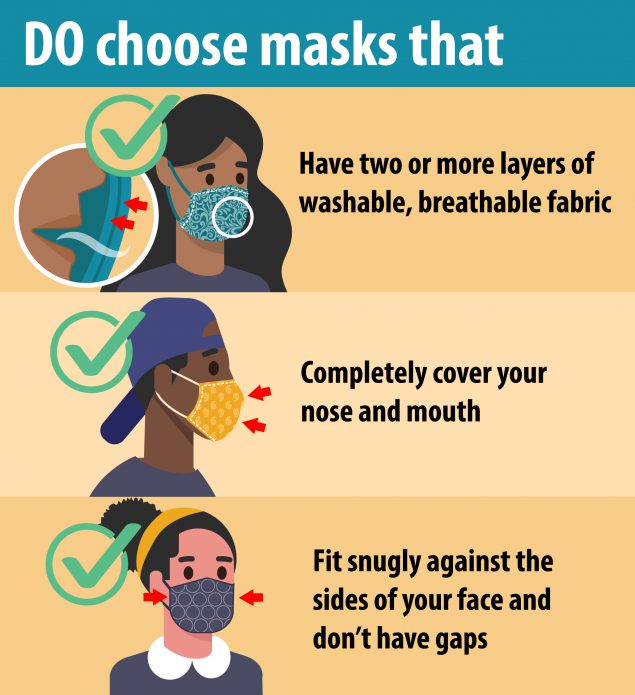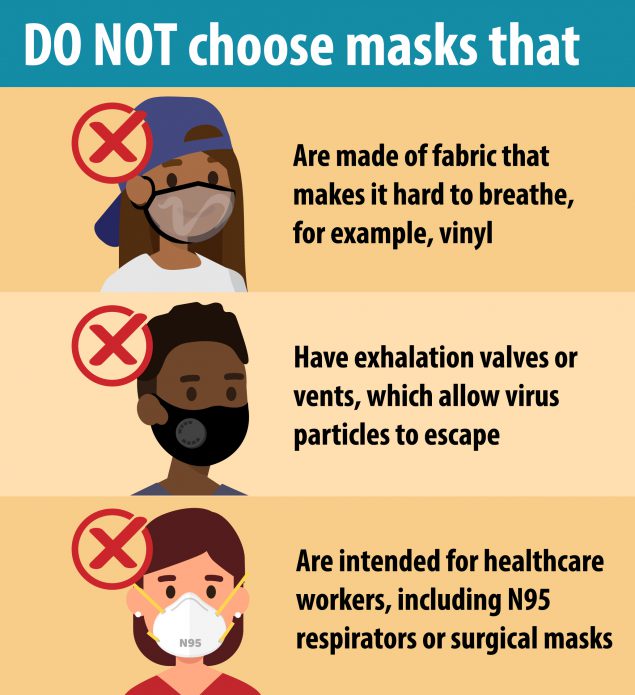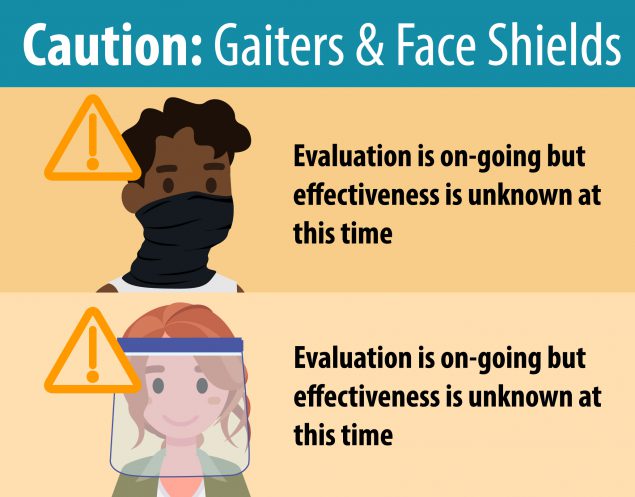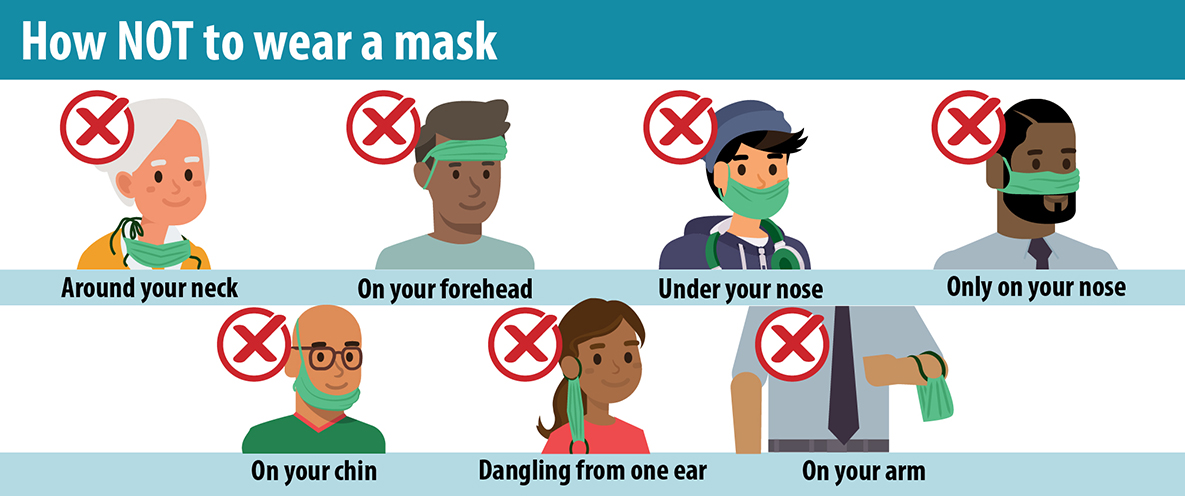Idaho State Updates Guidance on Face Coverings
October 12, 2020
All students, faculty, staff and campus visitors are required to properly wear cloth or disposable face coverings while on our campuses, including all indoor and outdoor public spaces when in the presence of others. For detailed guidance regarding where face coverings should be worn or can be removed, review the face covering section of the Roaring Back website. Recent research has shown that some cloth face coverings are more effective than others at stopping the spread of droplets.
One should select face coverings that meet the following criteria:
- Constructed of two or more layers of breathable fabric
- Completely covers your mouth and nose
- Fit snugly against the side of your face and under the chin so that you do not have gaps
Idaho State branded masks issued to all employees and students meet these criteria and were distributed at the beginning of the fall semester. If you did not receive your ISU cloth face coverings, you can request them by completing this form. Within the next two weeks these same cloth face coverings will be available for purchase, at cost, for faculty, staff, and students.
Recent studies have indicated that neck gaiters and bandanas may not be as effective as face coverings that meet the criteria above due to the composition of their material and thinness. If you are in a situation where you only have access to a neck gaiter or bandana you should fold or double up the fabric to add more layers for better protection. Students and employees should not wear face coverings intended for healthcare workers (e.g. N95s) or face coverings with exhalation valves.
Face Shields
According to the CDC, the effectiveness of face shields is currently unknown and is being evaluated. Although they may be less effective than cloth face coverings (masks), the University has allowed face shields in certain situations, such as instruction, ADA accommodations, and health exceptions. However, recently published data reinforce that clear face shields may be less effective than masks in reducing the spread of droplets and aerosols. With this new information, the COVID Health Committee is providing updated guidance on the use of clear face shields.
If a student or employee is medically unable to wear a cloth face covering, they should contact Disability Services to discuss appropriate accommodations (Phone: 208-282-3599, VP for ASL: 208-530-6505, Email: disabilityservices@isu.edu). Disability Services also has access to other face covering alternatives (other than face shields) including clear face masks for employees and students and those who interact with persons who are deaf or hard of hearing.
Idaho State has permitted the use of face shields by instructors during in-person lecturing to ensure that students needing to read lips or who have similar ADA accommodations are being served appropriately. If you are an instructor and you have been contacted by Disability Services about a student needing an accommodation, then you may wear a face shield while lecturing, or request a clear face covering if appropriate. If you are an instructor wearing a face shield, ensure that you maintain a distance of approximately eight to ten feet from all students in the class at all times. If an instructor does not have an accommodation for themselves or a student in their class, they must wear a cloth or disposable face covering. This is a change in policy and is based on recent studies that have demonstrated that clear face shields are potentially less effective than masks. It should be noted that not all students have applied for ADA accommodations, so faculty should communicate with students about their needs if they transition from a clear face shield to a cloth face covering.




Categories:
